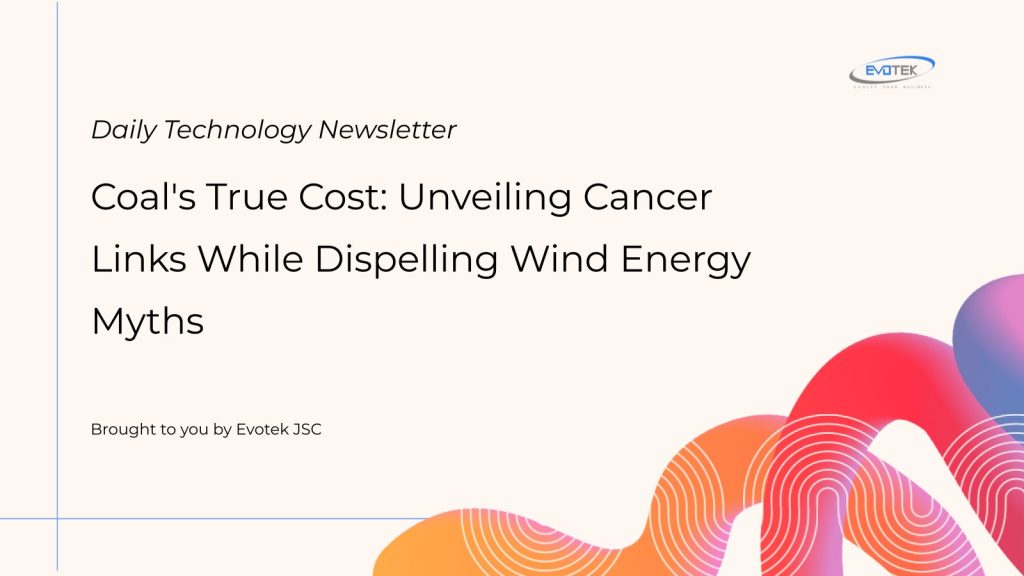Recent discussions about revitalizing the coal industry prompt a critical examination of its true costs, not just for the climate, but profoundly for human health. While fossil fuels are unequivocally the primary drivers of climate change, their direct impact on public health, particularly through coal, reveals a deeply concerning reality: coal combustion is directly linked to various forms of cancer and other severe health issues.
Documented Health Risks of Coal Power
Research from institutions like Duke University has extensively documented the health hazards stemming from coal power plants. Exposure to pollutants released by these facilities is associated with a range of devastating outcomes:
- Premature deaths
- Cardiovascular diseases
- Lung cancer
- Low birth weights
- Higher risk of developmental and behavioral disorders in infants and children
- Increased infant mortality rates
This vital information, readily available through public research, underscores the significant health consequences associated with fossil fuel combustion.
Coal’s Link to Lung Cancer Confirmed
Further reinforcing these findings, a study from the Harvard T.H. Chan School of Public Health observed a direct correlation between national reliance on coal-fired power plants and an increased lung cancer risk among citizens. This highlights a systemic public health threat inherent in coal-dependent energy policies.
The Hazardous Reality for Coal Miners
The dangers of coal extend beyond the general population exposed to emissions; coal miners themselves face significantly elevated health risks. Studies reveal that miners experience substantially higher odds of death from conditions such as Coal Workers’ Pneumoconiosis (CWP), Chronic Obstructive Pulmonary Disease (COPD), and lung cancer compared to the general U.S. population. This mortality rate has unfortunately worsened over time, with modern miners facing greater risks than their predecessors, particularly in Central Appalachian states like Kentucky, Virginia, and West Virginia.
The Toxic Legacy of Coal Ash
Beyond combustion emissions, the byproduct of burning coal—coal ash—presents another severe health hazard. This material is inherently toxic, containing radioactive elements. The Environmental Protection Agency (EPA) has revised its assessment of radium in coal ash, indicating that the cancer risk from exposure may be as much as 35 times higher than previously understood. Disturbingly, coal ash frequently ends up in waste pits and has even been used in various construction and road projects, raising serious questions about the safety of such applications and the unwitting exposure of the public.
A Parallel with Phosphogypsum
The situation with coal ash echoes the contentious use of phosphogypsum in road construction, particularly in Florida. This toxic material, a byproduct of fertilizer production, saw millions of gallons of untreated wastewater released into Tampa Bay from a stack facility in 2021, causing severe environmental damage and a red tide outbreak. Despite such environmental fallout, legislation has been passed to allow the use of this cancer-causing material in road construction, with pilot projects authorized even by federal agencies.
Dispelling Wind Energy Misinformation
In stark contrast to the scientifically documented dangers of coal, clean energy sources like wind power are frequently targeted by baseless claims. For instance, former President Donald Trump has consistently launched unfounded attacks against wind energy, labeling it a “con job” and fabricating links to human fatalities and whale deaths. He has even claimed wind turbines drive whales “crazy.”
It is crucial to clarify these falsehoods:
- What are incorrectly referred to as “wind mills” are actually modern wind turbines, designed to generate electricity efficiently.
- There is absolutely no credible evidence linking wind turbines to human deaths.
- Claims about wind turbines harming whales are unfounded. Many wind turbines are land-based, and offshore wind developments undergo rigorous environmental assessments, with no scientific basis for claims of causing whale mortality or distress.
- Perhaps the most egregious untruth disseminated is the assertion of a “link to cancer” from wind power, a notion entirely without scientific basis.
The persistent dissemination of misinformation, often leveraging emotional appeals and social media engagement, serves to overshadow the critical, scientifically-backed information about the severe impacts of fossil fuels. It is imperative that public discourse prioritizes factual data, especially concerning public health and environmental well-being, acknowledging the clear, documented dangers of coal while embracing the benefits and safety of renewable energy technologies.

 日本語
日本語 한국어
한국어 Tiếng Việt
Tiếng Việt 简体中文
简体中文